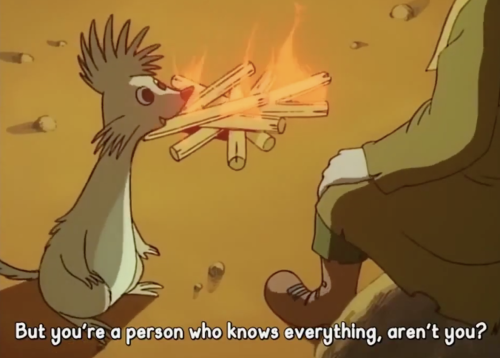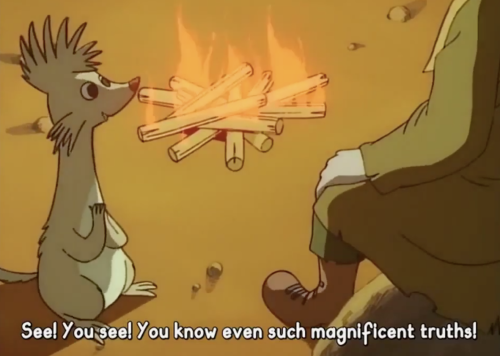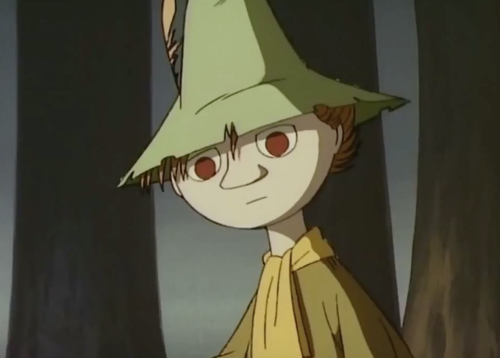
slothgod
beep boop
45 posts
Latest Posts by slothgod

Canon m50, f5.0 15-45mm
"I realized something. I'm a non-person, Sarah. You shouldn't be here, I'm not here. You may see me, but I'm hollow."
-Adrien Brody as Henry Barthes in Detachment, 2011

Canon m50, f5.0 15-45mm "Oh, dear. I'm bordering on the profound."
-Carolyn Martens, Killing Eve S1E6
My goal is to one day organically execute this dialogue in a conversation

"Let's keep our insides on the inside."
-Yennefer of Vengerberg from The Witcher S2E7
This line had my brain tickled.
Canon m50, f4.0 15-45mm




i think about this scene all the time


"Hell is other people"
-Jean Paul Sartre, in No Exit, a 1994 existentialist French play
These almost never look like the post edits. This is all a sham.
Canon m50, f5.6 15-45mm

“For my world to live, yours must die.”
— Optimus Prime, Transformers: The Last Knight
Canon m50, 15-45mm f6.0

"A fire broke out backstage in a theatre, the clown came out to warn the public, they thought it was a joke and applauded. He repeated it, the acclaim was even greater. I think that's just how the world will come to an end, to general applause from wits who believe its a joke."
-Soren Kierkagaard
Canon m50, 15-45mm f5.6
I cannot stand the car's presence in this photo, but to be fair it was an odd day anyway.

I want a ghibli filter as vision
Canon m50, 15-45mm f5.6

Dark themed buildings are so yum
Canon m50, 15-45mm f6.0

"A freedom which is interested only in denying freedom must be denied. And it is not true that the recognition of the freedom of others limits my own freedom: to be free is not to have the power to do anything you like; it is to be able to surpass the given toward an open future; the existence of others as a freedom defines my situation and is even the condition of my own freedom. I am oppressed if I am thrown into prison, but not if I am kept from throwing my neighbor into prison."
-Simone De Beauvoir, The Ethics of Ambiguity
This book is trippy
Canon m50, 15-45mm f5.6

Art by Roberto Diaz.

— Fyodor Dostoevsky from "The Brothers Karamazov"

- Sylvia Plath from the 'Unabridged Journals of Sylvia Plath'

Cold to the bone

-Essays and Aphorisms, Arthur Schopenhauer


Quantum mechanics posits that the world essentially operates on probability. But you know what else operates on probability?
(Wrong answers only)
Alternatively, 'merely understanding and ignoring assignments is a form of ecstasy'

'Understanding is a form of ecstasy.' to put it in Carl Sagan's words.
"Nostalgia is truly one of the great human weaknesses, second only to the neck"
-Dwight K Schrute, The Office, S9E7

“The mind, placed before any kind of difficulty, can find an ideal outlet in the absurd. Accommodation to the absurd readmits adults to the mysterious realm inhabited by children.” ―Andre Breton
hidden place by Amber Ortolano
“I’m sorry. But weariness is a kind of madness. And there are times when the only feeling I have is one of mad revolt.”
— Albert Camus, The Plague (trans. Justin O’Brien)
The Bystander Apathy

“Studies show that bystanders choose to remain passive in a case such as Kitty’s because they recognize it as, for example, a husband ‘beating up’ his wife– ‘family problems’. Thinking they have no say in it and that it isn’t their problem, bystanders decide to watch instead of helping. Because, as Nietzsche has said, other people’s suffering is strange to us. It is unknown- it is a foreign concept to us.”
According to Nietzsche’s philosophy, a crowd’s morality is life-denying. Reading about this topic made me think about the macabre death of Katherine Genovese. Incredibly close to help yet so far away.
But what causes this “Bystander Effect”?
Decades prior to the bystander apathy theory being created, Nietzsche had heavily critiqued ‘the morality of the crowd’ and our human values. Talking about topics such as activism, altruism and volunteerism and pointing out the fact that people were becoming more individualistic and less giving. Everything in our lives affects this. Whether that is the way our parents educate us, what we are taught at school and what ideals we learn about during our early years in life.
The Bystander Effect, otherwise known as The Bystander Apathy is a phenomenon where a bystander is less likely to offer help to a victim if there are other people around, or if otherwise, they are in a crowd. Boiling it down to a few points, the reason why this happens is because people will start avoiding responsibility or they will try to act as everyone else around them. Otherwise, their behavior completely changes from the latter when they’re put in an uncomfortable position as to not seem ‘rude’. The bystander’s behavior also changes depending on if a person is alone or with somebody.
The theory was spawned during the ‘60s after Kitty’s death. A woman getting no help while a killer attacks her even though 38 bystanders were there. So why did none of them intervene? Why did they let her die in such a manner when all of them together were able to fend off the offender?
Studies show that bystanders choose to remain passive in a case such as Kitty’s because they recognize it as, for example, a husband ‘beating up’ his wife– ‘family problems’. Thinking they have no say in it and that it isn’t their problem, bystanders decide to watch instead of helping. Because, as Nietzsche has said, other people’s suffering is strange to us. It is unknown- it is a foreign concept to us.












